The best way to deter pests naturally and organically is by planting mixed herbs and veggies that deter pests. When you practice natural pest control, you won’t need any chemicals. Plus, you’ll enjoy a fresher-tasting, healthier crop.
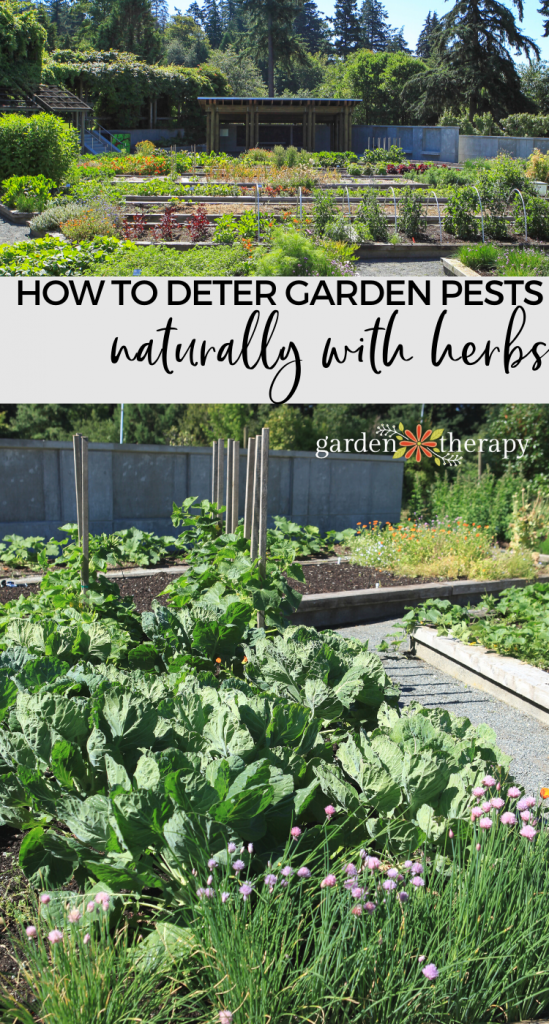
Growing organic, chemical-free garden veggies is the way to go. Not only does it taste better, but it’s also healthier for you and for the earth. Sometimes growing a natural, chemical-free garden means that we have to deal with annoying pests, but thankfully there’s an easy way to protect your crop and create a mini-ecosystem in your garden all in one!
The easiest and best way to do this is by interplanting herbs and vegetables in specific combinations that ward off aphids, cabbage worms, and other pests that could hurt your precious veggies. With a little planning and the right mix of herbs and vegetables, your garden can become a pest-free zone, naturally.

Natural Pest Control – The Best Herbs and Vegetables To Deter Pests
Here are some of my favorite companion plants for the vegetable garden and what they can do for you. Each item on this list has specific benefits it can offer your garden, so pick and choose what works best for your space.
Alliums (Chives and Onions)
Chives and onions are great to plant throughout the vegetable bed, not just for their own value as garden edibles, but because they ward off both spider mites, the carrot fly, and aphids. Chives make a great addition to a spring mix bed because they discourage pests and then you can snip chives and greens at once for a yummy, complete salad.
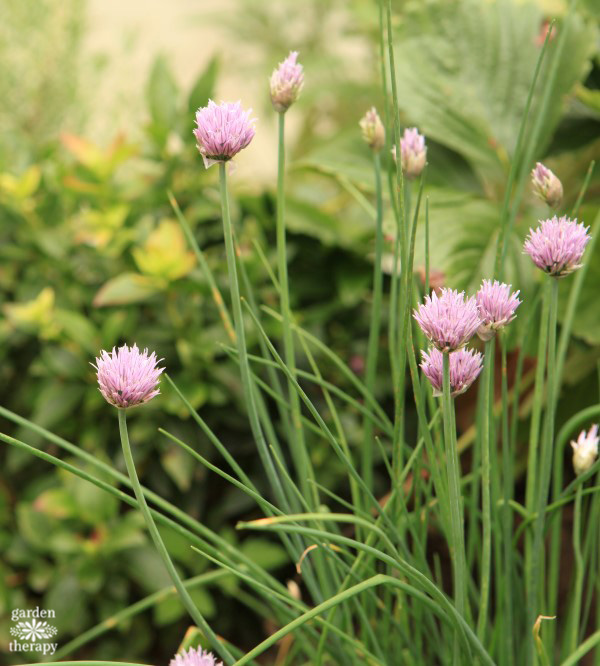
Basil
Ocimum basilicum naturally deters whiteflies, the carrot fly, and the asparagus beetle.
While most people find the strong fragrance of basil pleasing, it is too intense for mosquitoes and flies and they will avoid the plant. Position basil plants near patios, garden benches, or hammocks—any outdoor space where you want to be able to relax without getting bugged! You can find out about more mosquito-repelling plants and learn how to make an anti-mosquito planter here.
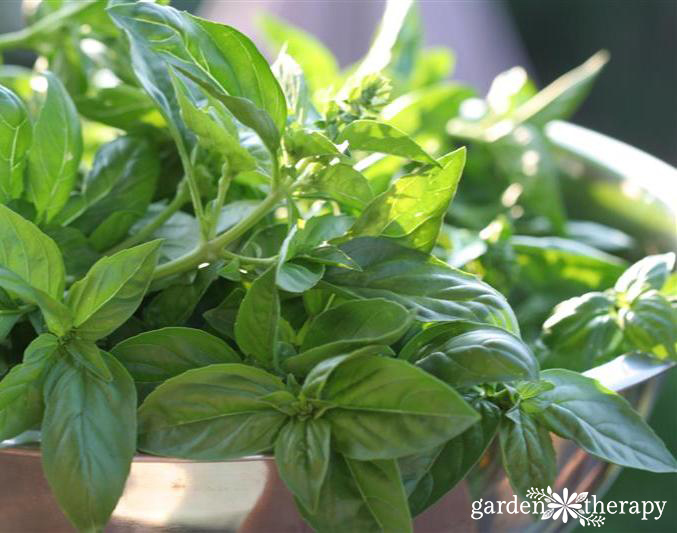
Borage
Borago officinalis – also known as the “starflower” – is effective at deterring the tomato hornworm and the asparagus beetle. It’s a medicinal herb with edible leaves and adds a stunning splash of color to your garden.
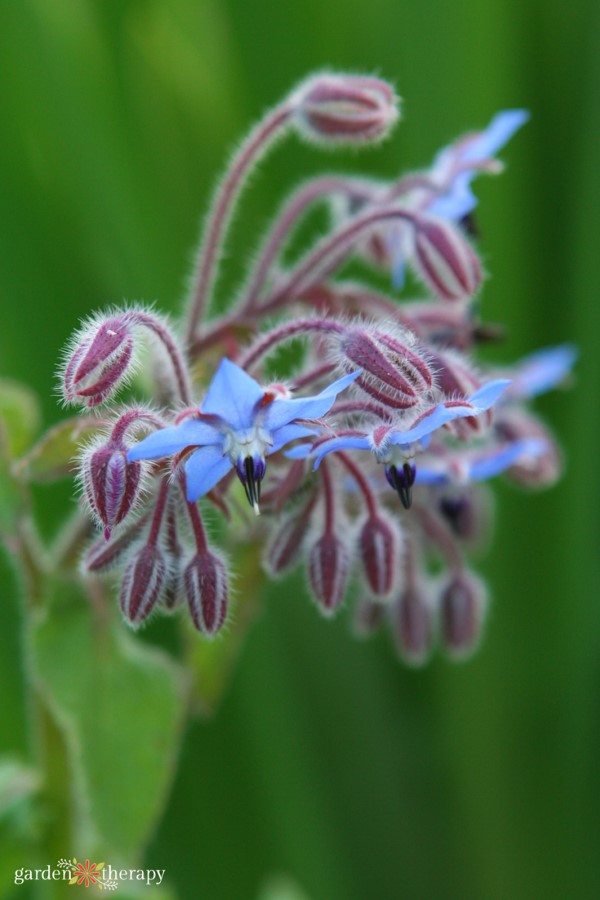
Catnip
Nepeta cataria might be a favorite of cats, but there are quite a few pests that hate it. It repels a long list of insects, including:
- Ants
- Flea Beetles
- Aphids
- Japenese Beetle
- Squash Bugs
- Weevils
- Colorado Potato Beetle
- Cabbage Looper
- Cockroaches
As you already know, this plant will definitely attract cats. If you use this catnip, you’ll need to create some kind of enclosure that will keep the cats away from this plant.
Cilantro/Coriander
Coriandrum sativum is one of those herbs people either love or hate. There is no middle ground. Even if you are in the “cilantro tastes like soap” group, planing this little herb can keep away pesky bugs. Aphids, spider mites, and the Colorado potato beetle all hate this plant.
Dill
Dill, also known as Anethum graveolens, repels spider mites, squash bugs, and aphids, but attracts tomato hornworms, so be strategic about where you plant it. By growing dill at a distance from your tomatoes, hornworms will be attracted to the dill and drawn away from the tomatoes.
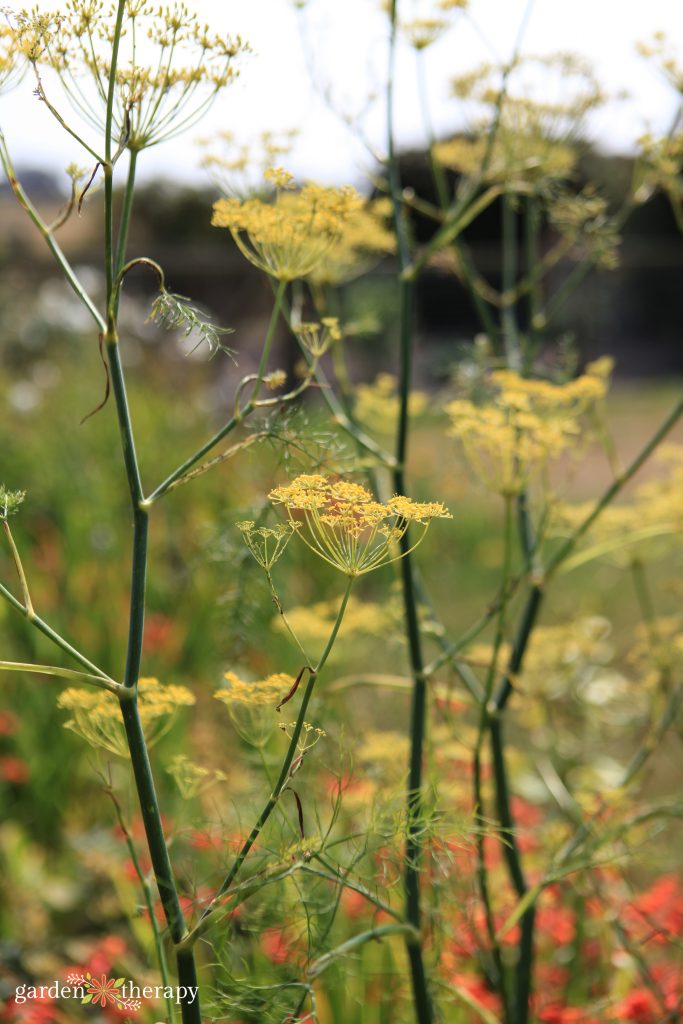
Garlic
Spider mites, aphids, Japanese beetles, and even fleas hate garlic. It is such an effective way to deter pests that attack various plants that I like to scatter a few garlic plants throughout my garden, in addition to planting a designated garlic patch (I love garlic, in case you haven’t guessed). Bonus: it will also keep vampires away.
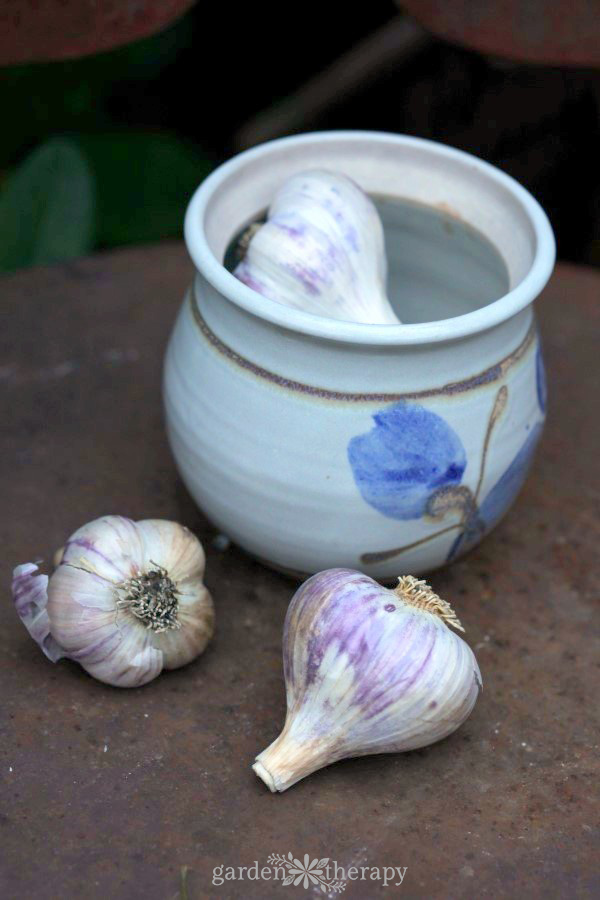
Lavender, Rosemary, and Sage
These aromatic herbs not only prevent pests, they also attract beneficial insects! Allow them to flower, and helpful pollinators will flock to your garden. Additionally, the intense fragrance of lavender, rosemary, and sage will cover up the scent of your precious veggies so that carrot rust flies, cabbage moths, and bean beetles won’t be able to find and devour them.
As an added bonus, there are so many fun projects you can make with these herbs. Lavender is a favorite of mine to use. Here’s how I harvest lavender to use for both recipes and crafts.
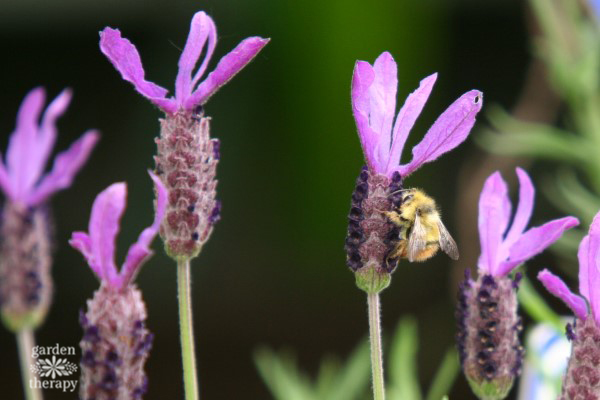
Mint
Mint, Mentha, is a great pest-fighter in the garden as it deters aphids, flea beetles, cabbage moths, and ants. That being said, be careful when growing mint around your other plants because it is invasive and can take over the whole garden if you’re not careful!
I suggest planting mint in pots and setting up the pots throughout the garden. This way, you’ll get a good amount of mint to harvest and use, and it will repel pests without infringing on the other plants in the garden. Everybody wins—except for the pests.
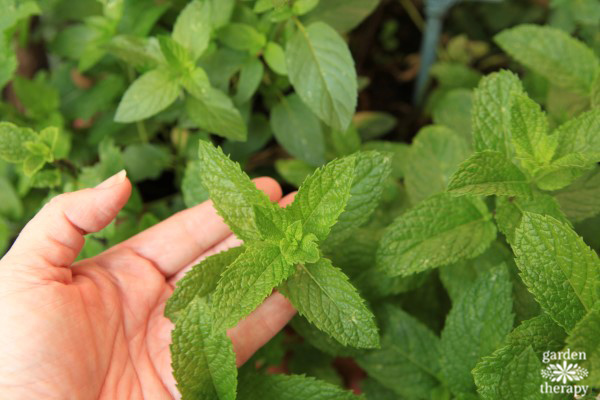
Pennyroyal
The Metha pulegium plant is in the mint family. It has a delightful odor to us humans, but it is too strong for bugs. It deters ants, gnats, fleas, mosquitos, flies, and even mice. If you have a gnat problem in your kitchen, bring in a potted pennyroyal plant.
Rue
The Rue plant – Ruta graveolens – is a strong-smelling ornamental plant. It has gorgeous yellow blooms and will dress up your garden beautifully. It deters cucumber and flea beetles, so plant it close to your cucumber plants.
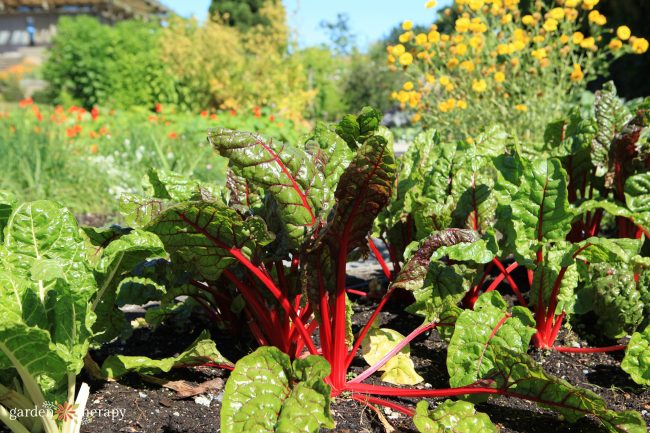
Tansy
The Tansy plant – Tanacetum vulgare – is another plant with bright yellow blossoms. While it does deter a huge list of pests naturally, such as ants, beetles, flies, squash bugs, cutworms, and small white bugs, it’s known as a noxious weed in 45 states. It’s known for taking over gardens and spreading fast. If you do want to plant it, be careful.
Tomato Leaf
The Lycopersicon Esculentum plant deters such a long list of pests it’s too long to put here. Even if you don’t plan on harvesting the tomatoes, having the leaves around will keep out so many bugs that it’s worth it to put in your garden.
Wormwood
Wormwood – Artemisia Absinthium – acts as a deterrent to cabbage worms, slugs, carrot rust flies, black flea beetles, and white cabbage butterflies. Grow wormwood in your veggie patch near lettuce and cabbage to keep your greens safe. You can get varieties that thrive in either sun or shade, so choose the one that makes sense for your vegetable bed.
Wormwood also comes in many beautiful ornamental varieties such as Silver Brocade wormwood which has delicate silver-gray leaves, so it can pull double duty in the garden as an eye-catching ornamental and vegetable bodyguard.
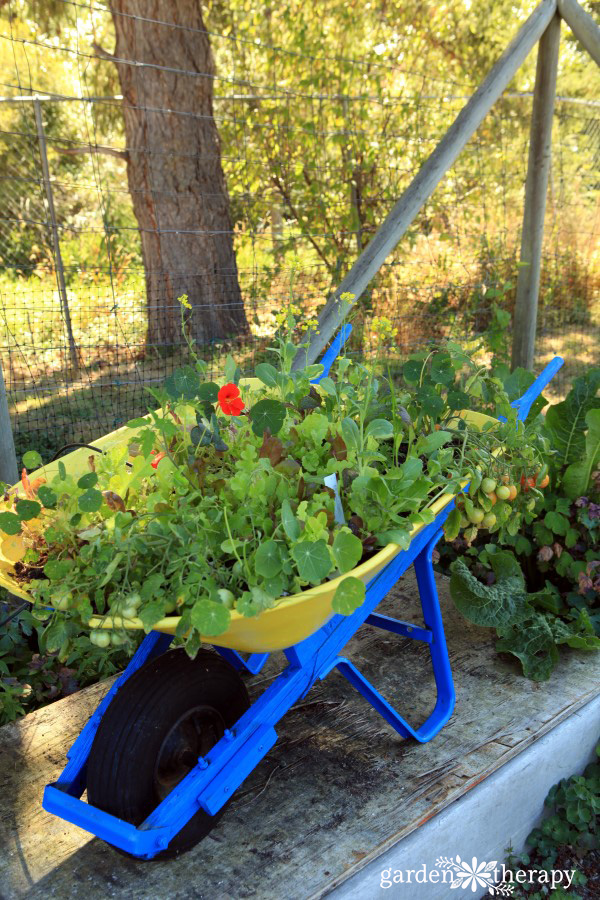
Create a Natural Herbal Pest Spray
I am often asked if there’s a spray I can recommend to deter pests away from the vegetable garden. To be honest, after years of browsing the gardening store aisles and reading bottle labels, I didn’t find anything I was crazy about. So, I made my own herbal pest deterrent.
This spray is made with a unique combination of garlic, chili peppers and herbs from this list. I share the entire spray recipe plus a lot more tips for keeping bugs off your garden in my newest book, Garden Alchemy. If you are at all interested in getting to understand your garden and it’s ecosystem better, I highly recommend you grab the book! It was a labor of love and my hope is it helps you better understand and love your garden as well…pest-free!
More Tips for a Happy, Healthy Garden:
- Create a No-Till Garden and Retire Your Tiller Forever
- Organic Ways of Getting Rid of Pests in the Garden
- All About Alliums
- Beating the Heat: Protect Your Plants from Heat Stress
- Three Ways to Save Seeds from the Garden
- The Home Gardener’s Guide to Shovels and Spades

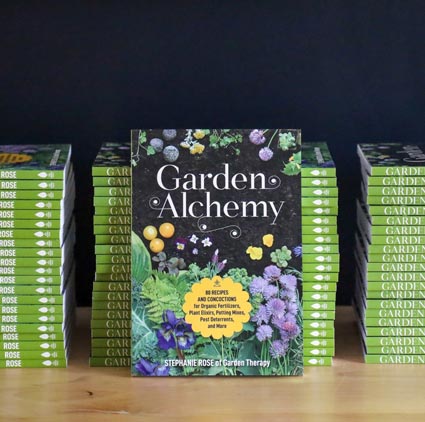


Great post! Last year I planted some herbs in the midst of my vegetables. The biggest benefits I actually noticed, came from tagetes (marigold). I planted these around my tomato and pepper plants. No damage caused by aphid invasions or whiteflies. I also had a lot of parasite wasps in the greenhouse helping, but I think the tagetes actually helped a lot! I’m definitely planting them again this season!
I am anyway using detergent and stream of water to deter mealy bugs. They keep coming again. I do not want to overspray pesticides on my plants. I will try to plant the couple of herbs you have mentioned. Let’s see what results would I get.
Will keep you posted.
This is a great list of plants to fight pests– I’ve been blessed this year because the chickens, quail and emus are doing a fantastic job depleting them on our little farm and garden. So blessed. Planting peppermint in the garden is also a great detour for bugs.
Great Article! I was able to use this information to help plan my veggie garden! Thank You! =)